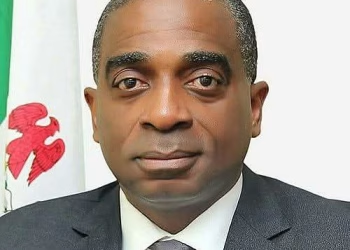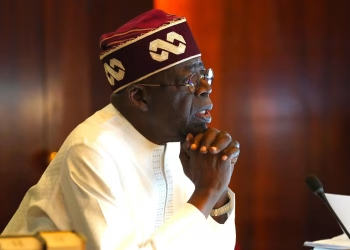The Human & Environmental Development Agenda (HEDA Resource Centre), in coalition with other 175 international and local organizations, is urging the Nigerian Government to stand on President Bola Ahmed Tinubu’s decision to block Shell’s proposed divestment of its onshore oil fields under SPDC to Renaissance African Energy. Renaissance, a Special Purpose Vehicle registered in the British Virgin Islands, is reportedly controlled by unknown individuals, raising concerns about transparency and accountability, decommissioning and abandonment, host community development funds, technical and financial capacity, and security for the country.
The President’s decision follows an in-depth assessment conducted by S&P Global, an international consultancy firm engaged by the Nigerian Government through the Nigerian Upstream Petroleum Regulatory Commission (NUPRC). S&P Global’s report flagged multiple issues in Shell’s divestment plan, including concerns over Renaissance’s financial credibility, as Shell is providing 70% financing for the acquisition of the assets, responsible for production of 30% of Nigeria’s oil output.
Additionally, the report challenged Shell’s low estimates of environmental damage caused by its operations in Nigeria, especially given the recent findings by the Bayelsa State Oil and Environment Commission, which put the cleanup costs for pollution in Bayelsa at $12 billion, with Shell being responsible for a reasonable share of the pollutions.
In a letter signed by HEDA Chairman, Olanrewaju Suraju, addressed to NUPRC’s Commission Chief Executive, Engr. Gbenga Komolafe, and copied to President Tinubu, UK’s National Crimes Agency, and US Department of Justice on behalf of the coalition, expressed concerns over the NUPRC’s silence on the Shell-Renaissance deal, in contrast to its announcement of approval of other divestment proposals, such as Eni-Oando and Equinor-Project Odinmim. This silence suggests the NUPRC’s alignment with S&P Global’s recommendations to reject the Shell-Renaissance transaction.
According to HEDA, members of the coalition have been closely monitoring developments and alarmed by reports of alleged pressure from Shell on government officials to disregard S&P Global’s findings. While HEDA makes no direct accusations of inducement, the organization emphasizes that these claims warrant serious investigation. The coalition has already reported the matter to relevant regulatory and investigative authorities.
According to Suraju, “The coalition is calling for the immediate public release of the S&P Global report on proposed divestment of SPDC, which was commissioned using public funds. NUPRC has a responsibility to ensure transparency and accountability in this process. HEDA, alongside its coalition partners will continue to monitor this issue closely and pursue all necessary legal and prosecutorial actions to uphold justice and environmental protection in Nigeria.”
Some of the civil society coalition members includes the Civil Society Legislative Advocacy Centre (CISLAC), Youths and Environmental Advocacy Centre (YEAC-Nigeria), Ijaw Elders Forum Lagos, Policy Alert, Urhobo Oil-Producing Communities Forum, and Corner House.
They also include Friends of the Earth International, Polluters Pay, Centre for International Environmental Law, Indigenous Environmental Network, Hawkmoth, Global Justice Ecology Project, Oil Change International, Oil & Gas Action Network, Alliance for Climate Frontline Communities, Social Development Integrated Centre (Social Action), Re:common, Fridays for the Future, and Greenpeace Africa, Women from the Mountain, System Change not Climate Change etc.











